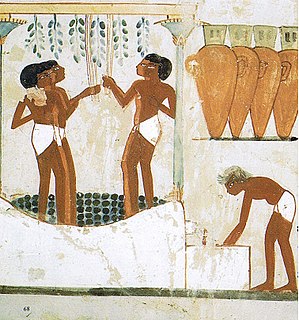**Historical Significance of Fermentation**:
– Conical loaves of bread in Egypt date back to 2435-2305 BC.
– 13,000-year-old beer residue found in Israel.
– Winemaking in Georgia around 6000 BC.
– Evidence of fermentation in Babylon around 3000 BC.
– Alcoholic drinks fermented in ancient Egypt, pre-Hispanic Mexico, and Sudan.
– Oldest brewery found in a cave in Israel.
– Discovery of 8,000-year-old wine in Georgia.
– Evidence of ancient fermentation practices in China.
– Indigenous fermented foods of Sudan.
– Contributions of Louis Pasteur to fermentation science.
**Scientific Research on Fermentation**:
– Studies on fermented beverages in prehistoric China.
– Nobel Prize in Chemistry awarded for fermentation research.
– Handbook publications on food and beverage fermentation technology.
– Link between fermented food, wine, and cancer.
– Research on Alaska’s higher botulism rates.
**Discovery and Role of Yeast**:
– Louis Pasteur connected yeast to fermentation in 1856.
– Pasteur concluded that fermentation is catalyzed by a vital force within yeast cells.
– Alcoholic fermentation linked to the life of yeast cells.
– Pasteur’s work laid the foundation for zymology.
– Yeast crucial in the fermentation process.
**Cell-free Fermentation**:
– Eduard Buchner discovered cell-free fermentation in 1897.
– Sugar could ferment without living yeast cells.
– Enzyme complex secreted by yeast, zymase, was identified.
– Buchner won the Nobel Prize in Chemistry in 1907 for his research.
– Ethanol fermentation studies led to the discovery of oxidized NAD in 1906.
**Uses and Benefits of Fermentation in Food Processing**:
– Food fermentation converts sugars into alcohol, organic acids, and carbon dioxide.
– Fermentation enriches the diet with flavors, preserves food, and enriches substrates with essential nutrients.
– Fermentation reduces cooking time and fuel use.
– Fermentation is used in producing beer, wine, spirits, bread, and dairy products.
– Enhances food preservation, improves nutritional value, produces unique flavors and textures, increases digestibility of food, and supports the growth of beneficial bacteria.
In food processing, fermentation is the conversion of carbohydrates to alcohol or organic acids using microorganisms—yeasts or bacteria—under anaerobic (oxygen-free) conditions. Fermentation usually implies that the action of microorganisms is desired. The science of fermentation is known as zymology or zymurgy.


The term "fermentation" sometimes refers specifically to the chemical conversion of sugars into ethanol, producing alcoholic drinks such as wine, beer, and cider. However, similar processes take place in the leavening of bread (CO2 produced by yeast activity), and in the preservation of sour foods with the production of lactic acid, such as in sauerkraut and yogurt.
Other widely consumed fermented foods include vinegar, olives, and cheese. More localised foods prepared by fermentation may also be based on beans, grain, vegetables, fruit, honey, dairy products, and fish.
